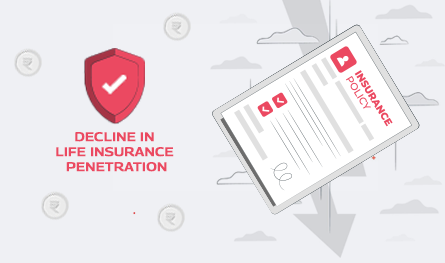Best Plant-Based Vegan & Vegetarian Sources of Protein
.png)
Do you know plant-based sources of protein are the least polluting food sources? As per a study, sticking to vegan protein sources helps reduce human-generated greenhouse gas emissions caused by animal food production.
.png)
Proteins are an essential part of your diet as they help the body repair and build cells. Generally, when we talk about protein, the most common food items that come to our mind are chicken and other animal protein sources. Though non-vegetarian food is a good source of protein, it is not the only source of protein.
One can consume different plant-based proteins to fulfill one’s daily protein requirement. Also, research has indicated that consuming plant-based proteins and limiting animal protein use reduces the risk of getting several chronic ailments. You receive ample amounts of antioxidants, minerals, and vitamins to augment your overall health with the help of vegetarian protein sources.
Power-Packed Plants
Here are some power-packed plant protein sources to add to your daily diet for the required protein intake.
1. Legumes:
One of the easiest ways to include plant protein in your diet is through legumes. Legumes are among the world’s most prominent families of plant species, with over 18,000 species and 650 genera. These are among the important staple food crops, which include beans, lentils, peas, etc.
- Chickpeas or Garbanzo beans are an excellent source of protein as well as fiber. One cup of cooked chickpeas provides over 14.5 g of protein
- One cup of cooked peas provides 8.58 g of protein
- Similarly, one cup of cooked lentils is a source of 17.9 g of protein
Legumes are packed with nutrients, while they are low in calories. Consumption of legumes supports keeping your BP and Sugar low.
2. Nuts and Seeds:
Nuts and seeds make a delicious snack rich in protein. They are versatile and excellent sources of plant-based protein.
- One-fourth cup of almonds contains 7 g of protein. They are also a rich source of antioxidants
- One-fourth cup of walnuts contains 4.5 g of protein. It is regarded as a heart-healthy food
- One-fourth cup of pistachios contains 6 g of protein, and
- One-fourth cup of cashews offer 5 g of protein
- Similarly, hemp seeds and pumpkin seeds also contain ample amounts of protein to meet your daily needs
3. Grains:
Grains are yet another excellent source of protein. Grains like quinoa, bulgur, sorghum, barley, and farro, with their several grams of protein per serving, have been the center stage of dinner tables. Along with protein, they are loaded with other nutrients to serve as the best source of plant-based protein.
4. Soy Products:
Soy food items like soy milk, tofu, edamame, and tempeh are other abundant sources of protein. People who avoid dairy can consume soy food as a major source of protein in their diet. These are whole or minimally processed soy food and offer varying nutrients for your good health.
Lesser-Known Heroes
In addition to the above-mentioned popular vegan protein sources, there are some lesser-known varieties noted below:
1. Seitan:
Made from vital wheat gluten flour, seitan is a plant-based vegan meat alternative rich in protein and low in carbohydrates. One-fourth cup of a serving of this culinary versatile food item provides 21 g of protein.
2. Spirulina and Chlorella:
These are the forms of blue-green algae that have found immense popularity as superfoods with high protein and vitamin content. Their impressive nutrient supplement and health benefits in terms of lowering the risk of heart and sugar diseases make them a perfect choice to include in your diet.
3. Nutritional Yeast:
Also called ‘Nooch’, this is the inactivated form of the regular yeast we use to make different food items like bread. The savory flavor of this yeast is good for your immune system and regulates cholesterol. Using nutritional yeast adds variety and flavor to meals and supplements your health with the right protein content.
The Protein Quest
Plant-based proteins are called vegan protein food and are full of ample nutrients and amino acids. They are also rich in fiber, protein, fat, carbohydrates, and sodium.
Key Nutritional Components of Plant Proteins:
1. Protein
2. Fibre
3. Vitamins – including Folate, vitamin C, vita
4. Minerals – like zinc, calcium
5. Vitamin D
6. Essential Amino Acids
7. B-vitamins – like vitamin B12
8. Magnesium
Regardless of the variety of nutritional benefits of plant-based proteins, there are still several misconceptions that cause us to perceive them as less healthy than animal proteins. Let’s debunk some such myths about plant proteins.
Common Misconceptions Regarding Plant Proteins
1. Misconception: Plant protein sources are incomplete sources of protein
Fact: One can easily achieve protein balance by adding a variety of plant protein sources to achieve the required protein intake of your body.
2. Misconception: Relying only on plant protein can cause iron and calcium deficiency.
Fact: By including fortified plant milk, dark leafy greens, seeds, and nuts, you can achieve essential minerals, including iron and calcium.
3. Misconception- Plant-based protein sources are bland.
Fact: You can play creatively with these plant-based sources of protein to create a spectrum of flavors to suit your taste. You can even experiment with plant-based global cuisine to add variety.
Crafting a Balanced Diet
Vegans also have the option to create complete protein-balance diets by combining several incomplete sources of proteins. So, if you are a vegetarian or you avoid eating animal protein, you can form the below combinations as best vegetarian protein sources to fulfill your optimal nutrition and protein requirements:
- Combine grains and legumes to create bean soups
- Black beans and rice combination is another good alternative
- You can add peanut butter to whole-wheat bread and enjoy
- Combining pasta and peas is another option to try
- Also, you may combine nuts, seeds, and legumes
- Salads with sunflower or any other seed and chickpeas
- Tofu and vegetables
- Oatmeal and pumpkin seeds
All the above and more combinations can be tried to achieve the protein requirement per your taste and preference.
Health and Environmental Benefits
Do you know the different sources of protein to boost your health, especially your heart health? Protein impacts the risk of heart ailments in different ways. As per studies, replacing high-fat animal protein with healthy low-fat plant protein can prevent heart ailments.
Legumes like chickpeas, lentils, split peas, and soybeans, as well as nuts and seeds like almonds, Brazil nuts, hazelnuts, cashews, peanuts, walnuts, and pine nuts, are regarded as good sources of protein that contribute to your cardiovascular well-being.
Along with health benefits, choosing plant-based proteins over animal protein is associated with a variety of environmental and sustainability benefits.
- It reduces the human-generated greenhouse gas emissions caused by food production, especially meat production
- Sticking to plant-based protein can also limit the loss of biodiversity and deforestation as more land will be used for growing crops
- Adopting a lifestyle of consuming plant-based food will also have a role to play in water conservation. Studies say that reducing animal intake may lower global water use to a certain extent
Fitness and Plant-Based Protein
There is a common perception that athletes and fitness enthusiasts must include animal protein sources to achieve the required protein content. However, there are many success stories of world-class athletes thriving on plant-based protein without consuming animal protein.
The fact is, a plant-based diet for endurance is not totally different from a regular diet containing animal protein in terms of benefits. With suitable plant proteins, it is not difficult to build muscle and strength. Many have stated they are thriving and gaining greater energy levels by going vegan.
Catering to Different Dietary Needs
1. Protein for Gluten-Free Diet:
If you are looking at gluten-free options for plant proteins, you may go for amaranth, a nutritious gluten-free grain, and quinoa. Millet, buckwheat, and teff are some other gluten-free food items that are also rich sources of protein.
Gluten-free oatmeal, brown rice, beans, and many other legumes are also rich sources of protein that are best suited for people with gluten sensitivities.
2. Celiac-friendly protein choices:
Celiac is an autoimmune condition caused by an immune reaction to eating gluten. Hence, gluten-rich food items like wheat, barley, and rye may trigger the symptoms of celiac disease. Celiac people need to maintain a strict gluten-free diet, called a celiac diet, to stay healthy and to heal their condition.
Soy, tofu, beans, lentils, and kidney beans are some examples of good plant-based proteins to include in a celiac diet for vegans. They can also include peas, nuts, nut butter, seeds, dark leafy greens, and dried fruits in their diet.

Author Bio
Paybima Team
Paybima is an Indian insurance aggregator on a mission to make insurance simple for people. Paybima is the Digital arm of the already established and trusted Mahindra Insurance Brokers Ltd., a reputed name in the insurance broking industry with 21 years of experience. Paybima promises you the easy-to-access online platform to buy insurance policies, and also extend their unrelented assistance with all your policy related queries and services.
Other Health Insurance Products
Latest Post
.png)
Do you want to know about the myths of online vs. offline buying of a bike insurance policy? Let’s learn about the most common misconceptions pertaining to getting bike insurance coverage.

.png)
Comprehensive bike insurance policy is an insurance plan offering all-inclusive coverage to your two-wheeler including coverage against Third-Party liabilities as well as Standalone Own Damages. Comprehensive plans allow policyholders to buy Add-On covers to widen the protection available under the plan. Hence, it is one of the most recommended two-wheeler insurance plan.


You probably don’t wait for your phone to completely crash before charging it, right? So why wait for a health emergency to start thinking about your well-being? That’s where preventive healthcare steps in. It’s about staying one step ahead of health issues, spotting trouble early, and handling it before it gets expensive or exhausting.
With preventive healthcare insurance, you can actually use your policy to stay healthy instead of just fixing things when they break. From free health check-ups to wellness rewards, modern health plans are becoming your health partner, not just your crisis manager. So, if you thought insurance was boring paperwork, it’s time to meet its smarter, more proactive side. Let’s explore how it all works and why your future self will thank you for paying attention now.


When was the last time you thought about getting a life insurance policy? If your answer is “I will get to it someday”, you are not alone. Despite India growing as one of the fastest expanding economies, life insurance penetration across the nation has remained surprisingly low. Life insurance penetration fell slightly to 2.8% in FY24, down from 3% in the previous year.


As any parent will tell you, kids come with two things: endless energy and absolutely no sense of self-preservation. From scaling chairs and tables like mountaineers to catching germs within a five-mile radius, kids really know how to keep everyone on their toes. Now, it is understandable you are worried. As much as we would love to wrap our small ones in cotton wool and keep them safe forever, real life has other plans.




